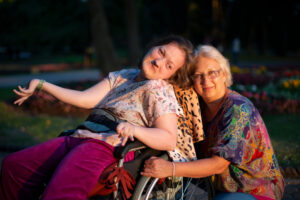Guardianship can be a critical component of special needs planning, as individuals with severe disabilities who cannot manage personal and financial affairs may need guardians upon turning 18.
 Legal Guardianship for Adults With Disabilities
Legal Guardianship for Adults With Disabilities
When children with significant cognitive or developmental disabilities become legal adults, their caregivers may lose the lawful ability to help with personal, health, and financial decisions unless they secure a guardianship.
Although guardianship can benefit adults with special needs, courts may restrict the rights of the ward — the person subject to guardianship. Wards may lose the right to:
- Vote
- Marry
- Decide where to live
- Give medical consent
- Make decisions about whether to prolong life with healthcare interventions
- Maintain a driver’s license
- Manage, buy, or sell property
- Own a firearm or weapon
- Make legal contracts
Guardians Must Promote Wards’ Independence
Guardians should exert the least amount of control necessary, while wards should have as much input as possible in making decisions. The appropriate amount of independence depends on the severity of the ward’s cognitive impairment and level of decision-making ability.
The choices a guardian makes should promote their ward’s health, safety, well-being, and independence and act in their ward’s best interests. However, some guardians unnecessarily restrict their wards’ freedoms, reducing their quality of life.
Liberties of Wards
Even under a guardianship, wards retain many fundamental freedoms. Caregivers and advocates of people subject to guardianship should know these rights so that they can prevent guardians’ control from becoming overly restrictive.
State laws govern guardianships, and numerous states have passed legislation to safeguard the rights of wards. The American Bar Association reported that, since 2015, 18 states have enacted laws protecting wards’ rights, while other states have strengthened their laws. Many states have passed versions of a Guardianship or Ward’s Bill of Rights, with rights including:
- Access to a lawyer and the power to ask the court for relief
- Appropriate treatment
- The ability to visit and communicate with friends, family, community members, and others
- Regard for the ward’s spiritual beliefs and wishes
- Privacy
- The highest possible level of control over their affairs
What to Do When You Suspect Abuse
Abuse by a guardian is illegal. Family, friends, and concerned individuals should know the signs of abuse and take action if they suspect a guardian is not acting appropriately. Signs of possible abuse by a guardian include:
- Preventing the ward from seeing others
- Deterring the adult under guardianship from consulting a lawyer
- Bruises
- Bed sores
- Dehydration
- Anxiety
- Depression
- A decline in health
- Moving the ward repeatedly without regard for the ward’s best interests
- Stopping the ward from seeing a doctor
If you have such concerns, contact your local Adult Protective Services and ask the court to remove the guardian. For further support, find a qualified special needs planner in your area.

Recent Comments